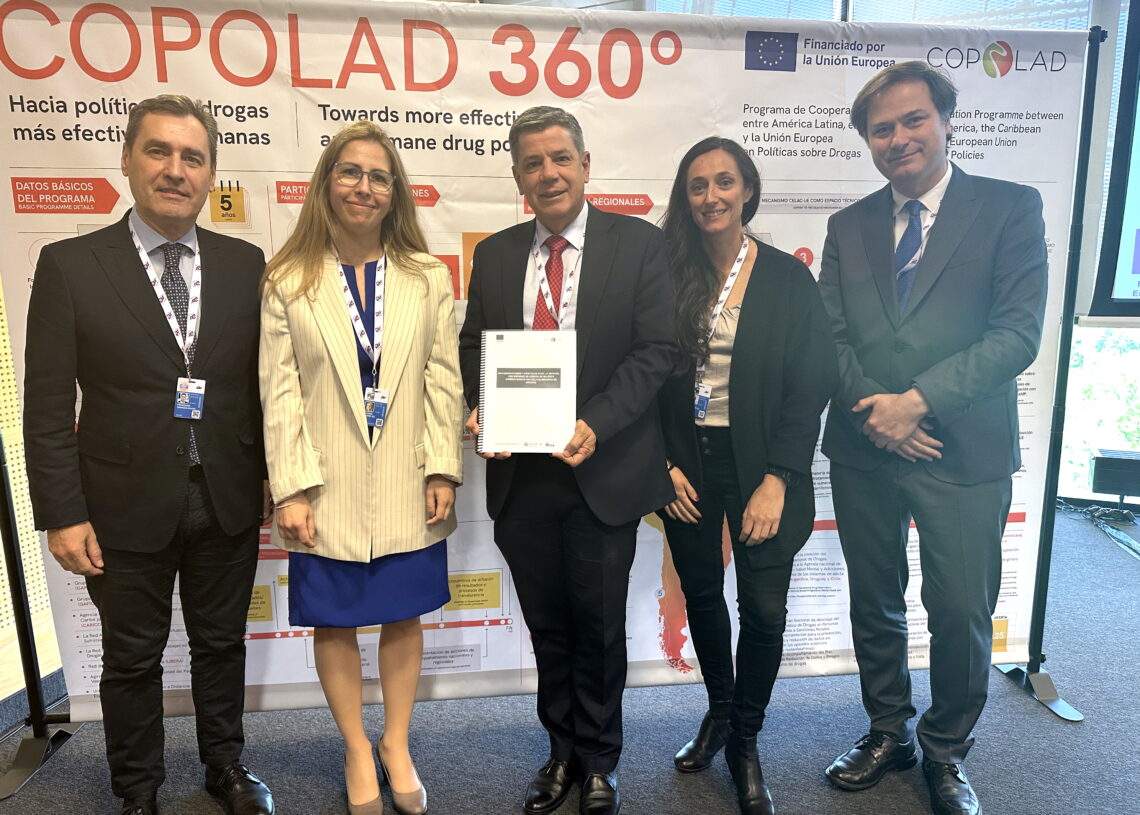The Inter-American Association of Public Defenders (AIDEF) General Assembly, held in Costa Rica, today approved a document of recommendations and practices for the defense of women criminalized for minor drug offenses, which promotes a gender perspective in public defenders and has been developed within the framework of the Latin America-EU Cooperation Program on Drugs COPOLAD III.
It is an initiative that gathers tools and practices for an efficient and effective defense that take into account the gender and human rights perspective. The intention is that this document will provide a minimum framework from which defenders can draw inspiration and adapt their defense strategy to the reality of each country.
AIDEF is an organization that brings together the public defenders’ offices of the Americas and the Caribbean, responsible for ensuring access to justice for all people, especially those who cannot afford a lawyer. Similar to the figure of the public defender, the AIDEF ensures that human rights are respected and that everyone, regardless of their economic situation, have a quality legal defense.
Proportionality of penalties
The implementation of drug policies has had a significant impact on the increased incarceration of women, particularly in the area of minor drug-related crimes, with Latin America being the region with the highest number of incarcerated women in the world.
Women criminalized for this type of crime tend to belong to vulnerable social sectors, with low schooling and a weak or non-existent relationship with the formal labor market. This situation of socioeconomic vulnerability places them in subordinate positions in the drug market, often as transporters or sellers of small quantities. Despite their marginal role in the criminal structure, it is they who face disproportionately severe sanctions, similar to those of people with greater involvement in the drug trade.
Among the measures recommended are the need to improve proportionality, the importance of taking into account the social and economic context of women, factors of violence or coercion, as well as caregiving responsibilities. It is also advised to work actively to eliminate gender stereotypes that may influence the judicial process. One of the most important aspects is to promote the use of alternative measures by highlighting the advantages for women and their dependents.
Future steps
In the coming months, the COPOLAD III program will promote alternative measures in several countries, such as: a technical-legal document on defense for women in collaboration with the Public Defender’s Office of Paraguay, a bill to implement deterrence commissions inspired by the Portuguese model in Trinidad and Tobago, and a proposal to introduce restorativeand a proposal to introduce restorative justice processes for young people who commit minor drug offenses in the Dominican Republic, and a protocol will be published for the proper implementation of restorative justice in Costa Rica, following the enactment of article 77 bis of Law 8204.
Finally, in 2025, the General Assembly of the Conference of Ministers of Justice of Ibero-America (COMJIB) is expected to approve the document on Regional Standards for the Humanization of Criminal and Penitentiary Policy as a key element of a Regional Pact on proportionality and criminal alternatives to minor drug offenses.
The commitment to alternatives to minor drug offenses is led by the FIIAPP within the framework of the COPOLAD program with the support of eGob Tirant.






